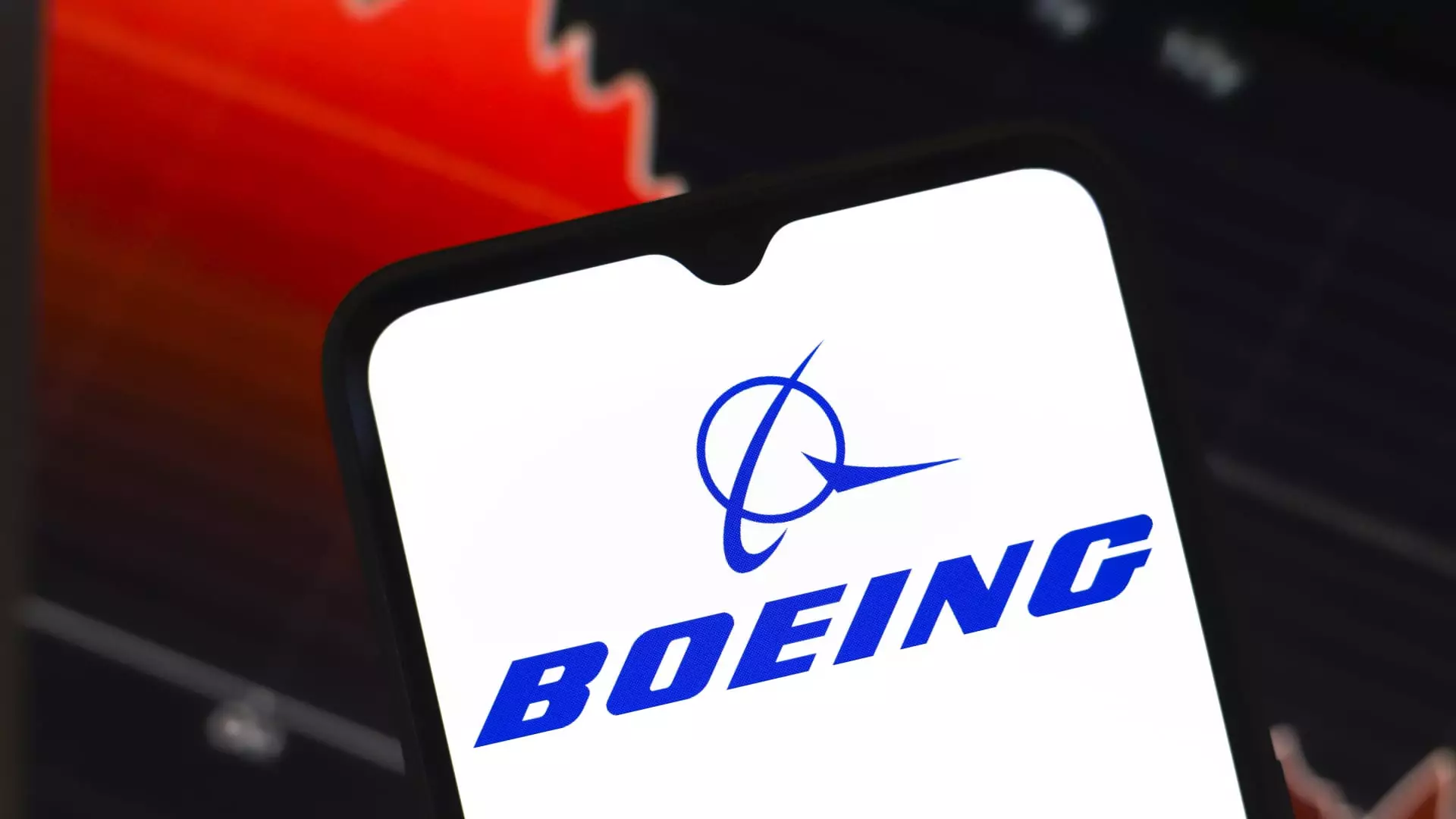The aerospace industry has taken its fair share of hits in recent years, especially the giants like Boeing. The past year bore witness to tumultuous events, including quality control dilemmas and labor strikes that significantly impacted Boeing’s stock value, causing a staggering 32% dive. However, experts suggest that investors might be making a grave error by dismissing Boeing’s stock during this pivotal moment. An analysis of the company’s trajectory and expert opinions sheds light on why it may be time to reevaluate Boeing as a potential investment opportunity.
Recovery from Adversity
Boeing’s journey through 2024 has been anything but smooth. Following a low closing price of $138.14 in November, the company’s stock has seen a substantial rebound, climbing nearly 34% in recent months. Commentary from Tim Seymour, founder and chief investment officer of Seymour Asset Management, reveals a deep belief in Boeing’s potential. He asserts that abandoning the stock now,” would be a mistake. Seymour’s insights emphasize the importance of not only considering past difficulties but also understanding the current strategies Boeing is implementing to regain financial stability.
Seymour points out that “getting the house in order” is crucial for Boeing’s future success. The firm has indeed burned through cash in recent years, but Seymour believes that these financial hemorrhages are about to turn into a new era of profitability. His projections suggest that Boeing will achieve free cash flow positivity by 2026, marking a transformative juncture for the company. Such forecasts could entice cautious investors back into the fold, especially those motivated by the promise of steady future earnings.
The aerospace sector does not operate in a vacuum. External pressures, including geopolitical tensions, technological advancements, and changing consumer demands, play monumental roles in shaping market dynamics. Boeing’s models and innovations must keep pace with these evolving demands, making strategic decisions all the more critical. Seymour’s optimistic outlook hinges on the belief that Boeing is well-positioned to adapt and thrive in an evolving landscape. If the company can execute its recovery strategy effectively, this may indeed solidify its place as a dominant player in the aerospace market for the years to come.
Boeing’s recent stock surge underscores a broader trend observed in many traditionally struggling stocks. Companies that have faced adversity yet taken decisive action to implement change often rebound strongly. As investors scout for viable opportunities amidst market tumult, established players with potential for recovery like Boeing could emerge as lucrative propositions.
Comparative Insights from Industry Peers
While Seymour’s focus on Boeing is compelling, evaluating its performance alongside other struggling companies serves to highlight its potential. For instance, CVS Health, which faced a 43% decline in 2024, recently turned around with a notable 22% gain following strong quarterly earnings. Seymour identified CVS as a “turnaround story,” bolstered by leadership changes and strategic restructuring. This parallel evolution illustrates how corporate evolution can spark investor confidence and market rebounds.
Conversely, Seymour’s recommendation to steer clear of another tech stalwart, Intel, paints a cautionary tale. Despite recent efforts to bolster its stock after a plummet of 60%, Seymour expresses dissatisfaction with the company’s direction, claiming it as a “rudderless ship.” This highlights the essentiality of requisite leadership and strategic planning for any company to flourish.
For potential investors, the decision regarding Boeing carries weighty implications. Market dynamics shift rapidly, and discerning the next “hot” stock requires not just analytical acumen but also an understanding of industry fluctuations. While some investors may prefer to shy away from risk-laden stocks, embracing companies that are undeniably foundational, such as Boeing, could yield substantial long-term rewards.
As the aerospace giant plots its comeback through fiscal stabilization and strategic positioning, investors face a choice: to abandon or to invest. With industry challengers adapting and evolving, Boeing’s expertise and historical resilience may prove beneficial for those willing to ride the wave of uncertainty. The question remains: Are investors ready to trust in the recovery narrative of a company with profound implications for the aerospace sector and beyond? Only time will tell as the market continues to develop.

